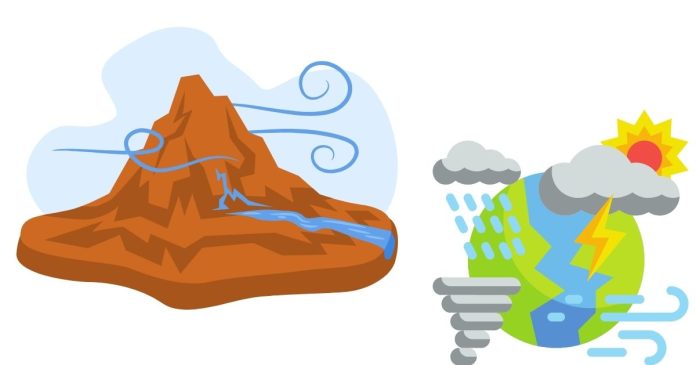Chemical weathering occurs when rocks are broken down through chemical reactions. Three common causes of chemical weathering are:
- Water: Water can dissolve minerals in rocks, particularly when it’s slightly acidic (like rainwater). Over time, this process can cause the minerals to break down or change into new substances.
- Oxygen: When rocks are exposed to oxygen in the air or water, a process called oxidation can occur. This is especially common with iron-rich minerals, turning them into rust (iron oxide), which weakens the rock.
- Acids: Acids, such as carbonic acid from carbon dioxide in the atmosphere or sulfuric acid from pollution, can react with minerals in rocks. This often results in the rock dissolving or breaking down into simpler compounds.
These processes are typically slow, but over long periods, they can significantly alter or break down rocks.


